Central America
Colombia hardens tone against Ortega, rejects his “dictatorial actions”.
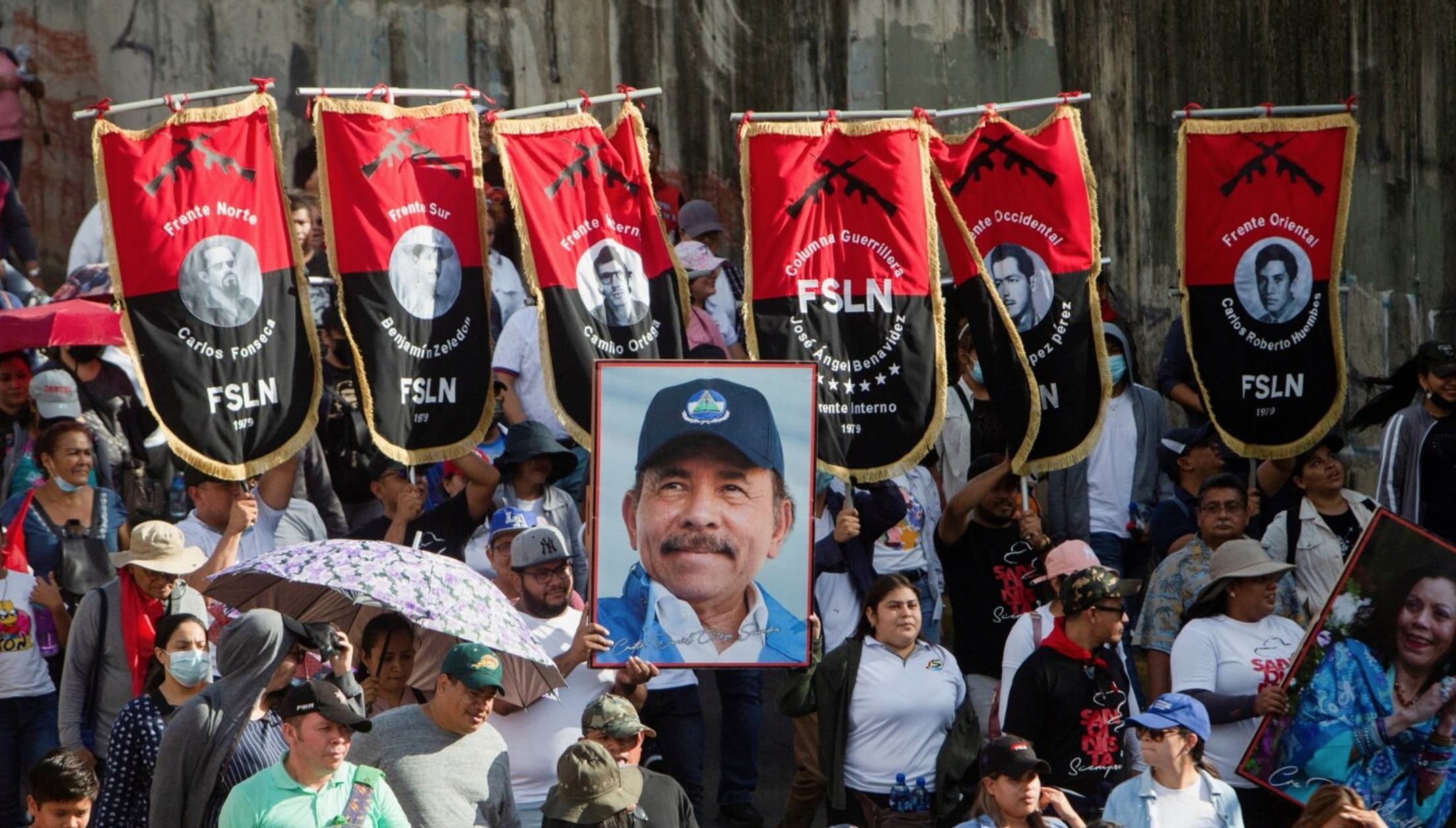
February 24 |
Despite having used a conservative tone in its most recent pronouncements on the banishment and stripping of the nationality of Nicaraguan political opponents by the government of Daniel Ortega, a statement from the Colombian Foreign Ministry was more forceful on Thursday and rejected the “dictatorial actions” of the Nicaraguan head of state.
According to the text of the Colombian Foreign Ministry, the South American country “has registered with revulsion the measures taken arbitrarily” by Ortega against political prisoners, “whose only crime has been to defend democracy, the right to criticism and universal human rights”.
Last Friday, a communiqué from the Foreign Ministry expressed “concern” over the withdrawal of the nationality of 94 citizens, and regretted the stripping of the nationality of more than 200 former political prisoners sent to the United States, but said that their release and transfer was “an important step for the national dialogue”. And he called for “confidence-building measures that contribute to national reconciliation, respect for the rule of law and the well-being of the Nicaraguan people”.
But in less than a week, the government of President Gustavo Petro hardened his words by pointing out that Ortega’s actions evoke “the worst moments of the dictatorship of Atanasio Somoza that Sandinismo managed to overcome”.
He also condemned the “surprising and inhuman” exile of Nicaraguans who have fought “for the international community” and the use of “vulgar police measures”, and highlighted the struggle of those who have decided to stay in Nicaragua, taking as an example the case of the Bishop of Matagalpa, Monsignor Rolando Alvarez, sentenced to 26 years in prison.
Colombia also urged the world “to react” and asked the President of the International Committee of the Red Cross, Mirjana Spoljaric, to request authorization to visit the Nicaraguans still imprisoned, since they are “victims” and “international humanitarian law covers them”.
“The authoritarianism that has been imposed in the sister republic has violated jus cogens norms”, adds the communiqué.
The Foreign Ministry also confirmed that it seeks to contact the exiles who wish to obtain Colombian nationality: “They would honor us very much”. Precisely, on Wednesday, Colombia offered nationality to writer Sergio Ramirez, who met with the Colombian Foreign Minister, Alvaro Leyva Duran, on Tuesday, in Madrid.
Argentina was the first country in the continent to offer nationality to “stateless” Nicaraguans. Subsequently, Chile, Spain and Mexico followed suit.
Central America
Washington Imposes Visa Ban on La Modelo Director Amid Crackdown in Nicaragua

The United States government announced Wednesday that it has imposed visa restrictions on Roberto Clemente Guevara Gómez, director of Nicaragua’s largest prison, La Modelo, for his involvement in actions that violate human rights.
In a statement, U.S. Secretary of State Marco Rubio said the measure is intended to promote accountability for abuses committed under what he described as the “Murillo-Ortega dictatorship” against political prisoners.
Rubio specified that Guevara Gómez was designated for participating in “a gross violation of the human rights of a political prisoner.” The sanction was issued under the 2024 Department of State, Foreign Operations, and Related Programs Appropriations Act, which bars the sanctioned individual — and potentially immediate family members — from entering the United States.
“United States demands the immediate and unconditional release of all political prisoners unjustly detained in Nicaragua,” the statement added.
Ongoing tensions between Washington and Managua
Washington rejected Nicaragua’s November 2021 elections, in which President Daniel Ortega and his wife, now co-president Rosario Murillo, were reelected while seven potential challengers were in prison.
Relations between the two countries remain tense amid expanding U.S. sanctions and increasing diplomatic pressure on the Nicaraguan government.
On January 10, marking Ortega’s 19 years in power, Nicaragua released “dozens of detainees,” including political prisoners. The move came one day after the U.S. Embassy in Managua stated that “more than 60 people” remain “unjustly detained or disappeared” in the Central American nation.
U.S. officials have continued to push for the “unconditional release” of political prisoners rather than selective or temporary releases.
Ortega, 80, governs alongside Murillo with consolidated authority, having strengthened executive power through constitutional reforms and security measures, while the opposition has been weakened by imprisonment, exile, and the revocation of citizenship and property rights.
Central America
Guatemala’s Attorney General Consuelo Porras Loses Bid for Constitutional Court Seat

Guatemala’s attorney general, Consuelo Porras, who has been sanctioned by the United States over corruption allegations, lost a key vote on Monday in which a public university selected two of the 10 magistrates for the country’s highest constitutional court. However, she could still seek a seat through another nominating body.
The election of five full magistrates and five alternates to the Corte de Constitucionalidad (CC) is taking place gradually over more than two months and is considered crucial in the ongoing struggle for control of Guatemala’s judiciary, which critics say has long been influenced by a political and economic elite accused of corruption.
According to results announced at a press conference, the governing council of the Universidad de San Carlos de Guatemala (USAC) rejected Porras, who had applied as either a full or alternate magistrate, and instead chose two candidates aligned with the university rector. The vote was held at a hotel in Antigua, about 35 kilometers from the capital.
Despite the setback, Porras — whose term as attorney general ends on May 16 — could still be nominated to the Constitutional Court by the Corte Suprema de Justicia, which appoints two magistrates. The remaining six are selected by the president, the bar association and Congress.
“It’s always a possibility,” the 72-year-old lawyer said days earlier when asked by reporters whether she would seek nomination through another institution if she lost the USAC vote.
Porras has been sanctioned by Washington and the European Union for allegedly attempting two years ago to block the inauguration of President Bernardo Arévalo and for pursuing legal actions against anti-corruption prosecutors, judges, journalists and social leaders since taking office in 2018.
The USAC vote was controversial because most members of the university’s governing council are serving beyond the expiration of their terms. Students, academics and social activists staged protests against Porras’ candidacy.
Central America
Teens visit ETESAL substation to learn about responsible energy use

Within the framework of World Energy Day, teenagers from the institutional care center Ciudad Niñez y Adolescencia (CNA), run by the Consejo Nacional de la Primera Infancia, Niñez y Adolescencia (Conapina), took part in an educational visit to a substation operated by Empresa Transmisora de El Salvador (ETESAL) in Santa Ana.
The aim of the activity was to give participants first-hand knowledge of how the country’s electricity transmission system works and to highlight the importance of responsible energy use.
During the tour, the group learned about the process that delivers electricity to homes, businesses, and industries. They were also introduced to specialized technical equipment and the safety measures required to ensure an efficient and reliable service.
Before the guided visit, the teenagers attended two informative talks and an environmental awareness session focused on the relevance of responsible energy consumption and its impact on the environment.
According to Nelson Menjívar, head of Conapina’s programs unit, the initiative serves a dual purpose. “It has two objectives: a recreational component and an educational one, so that adolescents can learn about the work carried out by ETESAL and how some of the resources they use at home are generated. This is in keeping with the guarantees established under the Crecer Juntos law; we ensure those rights for children,” he said.
Menjívar stressed that these activities help young people better understand how essential services function in their daily lives while promoting efficient consumption habits and a culture of environmental respect and care.
The event is part of the principle of shared responsibility set out in the Crecer Juntos law, promoted by the administration of Nayib Bukele, which states that families, society, private companies, and the State must work together to safeguard the comprehensive well-being of children and adolescents.
-

 Central America4 days ago
Central America4 days agoGuatemala’s president denounces MP raids during Constitutional Court election
-
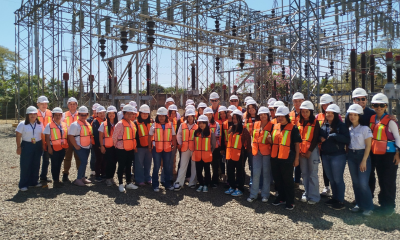
 Central America3 days ago
Central America3 days agoTeens visit ETESAL substation to learn about responsible energy use
-
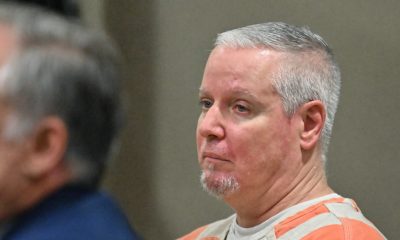
 International1 day ago
International1 day agoFather Faces Murder Charges in Georgia School Shooting Case
-

 International1 day ago
International1 day agoSpanish Government Targets ‘Big Tech Impunity’ in AI Image Scandal
-
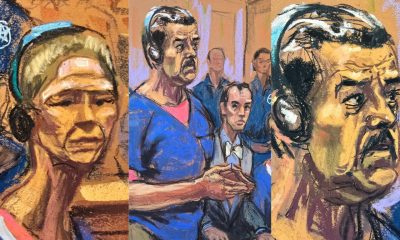
 International7 hours ago
International7 hours agoMaduro and Cilia Flores Receive Consular Visit in U.S. Jail Ahead of March 26 Hearing
-
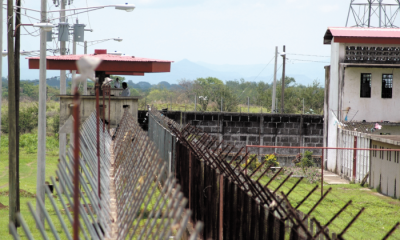
 Central America7 hours ago
Central America7 hours agoWashington Imposes Visa Ban on La Modelo Director Amid Crackdown in Nicaragua
-

 International7 hours ago
International7 hours agoRubio Engages in Quiet Discussions With Castro Family as U.S. Pressures Havana
-
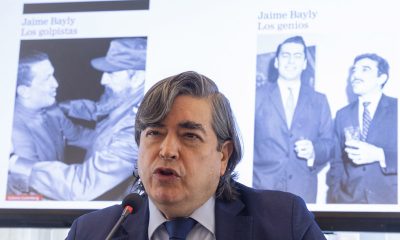
 International7 hours ago
International7 hours agoBayly Says Trump ‘Gets Along Better With Dictators’ and Criticizes U.S.–Venezuela Policy
-
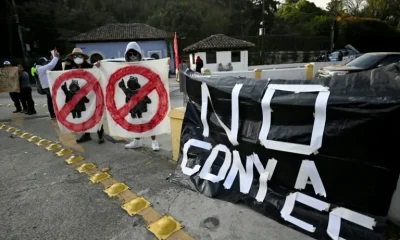
 Central America2 days ago
Central America2 days agoGuatemala’s Attorney General Consuelo Porras Loses Bid for Constitutional Court Seat


























